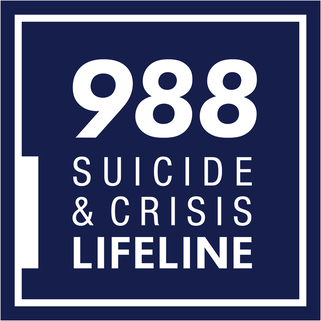|
By ABCS RCM
When people suffer from insomnia, the condition is often blamed on stress or bad sleep habits. But the question is often asked, does depression cause insomnia or is it the other way around? In other words, which condition came first? Or are they both equally at work? There is a definite link between insomnia and depression. In fact, one of the more common signs of clinical depression in a person is an inability to fall and stay asleep. Everyone experiences stress at some point in their life. This stress is likely a contributor to both insomnia and depression. Some researchers state that about 30 percent of all Americans will, over the course of their life, experience a period of clinical depression. Other estimates believe that roughly 40 percent of U.S. adults state that they do not get enough sleep at night. This includes frequently waking up in the middle of night or feeling not fully rested in the morning. But can mental illnesses like depression cause insomnia? In reality, this is a very complex question with no simple answer. Some people with depression sleep too much, while others sleep hardly at all. In these instances, the people who sleep too much may actually do to issues of poor sleep quality. For example, individuals with a bipolar disorder may sleep two hours one night and sixteen hours the next. However, following proper medication adherence program would help to reduce and control irregular sleep patterns. Traditional thinking states that chronic insomnia was associated with depression. Mental health providers have noticed that longer people experienced insomnia, the more depressed they became. But was this merely a correlational in the research and not a causation. In other words, would these people have become depressed anyway, and are incidentally displaying symptoms of insomnia? More recent studies confirm that there is a connection between insomnia and depression. Data shows that people who have trouble with insomnia tend to experience far more depressions. This collection of data was collected from varied sources which found that sleeplessness alone, including shift work, is associated with higher rates of depression. An inability to sleep is one of the key signs of clinical depression. Another sign of clinical depression is sleeping too much or oversleeping. Having a sleep disorder does not in itself cause depression, but lack of sleep does play a role. Lack of sleep caused by another medical illness or by personal problems can make depression worse. An inability to sleep that lasts over a long period of time is also an important clue that a person may be depressed. Recent studies are finding that many factors contribute to insomnia, not just depression. Research has found that roughly 90 percent of people with major depressive disorder (MDD) experience sleep problems. However, to better understand depression and insomnia, it is necessary to explore these symptoms independently, beginning with the more prevalent occurrence of insomnia. Other research on the subject has noted that insomnia is often seen before people become clinically depressed. Sleep problems also persisted once someone's clinical depression was in remission. These researchers believe that they may be witnessing two disorders at the same time (comorbidity), instead of interpreting insomnia as an exclusive symptom of depression. A better understanding of insomnia is needed since the condition costs the U.S. workforce more than $63 billion each year in lost productivity, according to some estimates. The incidence of insomnia is also wide-spread. It is believed that as much as a one-third of the world’s population suffers from some type of insomnia-related condition at any given time. For detailed answers about insomnia and depression, contact an experienced Psychiatrist or other behavioral health professional. But, for general advice on self-regulating sleep and getting a good night’s rest, here are five tips. [1] Keep a consistent sleep schedule. Wake up at the same time every day, even on weekends or during vacations. [2] Follow a sleep routine that allows you to get at least 7 hours of sleep per night. [3] Try not to go to bed unless you are tired. If you are not asleep after 20 minutes, get out of bed. [4] Take an herbal supplement like Valerian root. This over-the-counter supplement is sometimes helpful for the treatment of insomnia. [5] Establish a relaxing bedtime routine. A regular nightly routine helps the body recognize that it is time to go to sleep. This could include taking a warm shower or bath, reading a book or even light yoga stretches. When possible, try to avoid emotionally upsetting conversations and physical activities immediately before going to bed. For additional questions about the connection between insomnia and depression, contact the staff at Providers for Healthy Living. They have four convenient office locations in Central Ohio. Their behavioral and mental health programs provide a full range of treatment options for both children and adults.
0 Comments
Leave a Reply. |
|
Please DO NOT use this email address for medication refill requests or for emergency situations.
Click here for refill requests instead of using email: Medication Refill Request Form If you have a medical emergency, email is never the appropriate way to communicate your needs, and you should instead call 911 or go to the nearest ER. If you are having suicidal thoughts and need to speak to someone immediately, you can contact Suicide Prevention Hotline at the number (and link) below. [email protected]
Communications via email are not secure. Although it is unlikely, there is a possibility that the information you include in an email can be intercepted and read by other parties besides the person to whom it is addressed. |
|
2024 Providers for Healthy Living | All Rights Reserved
|

